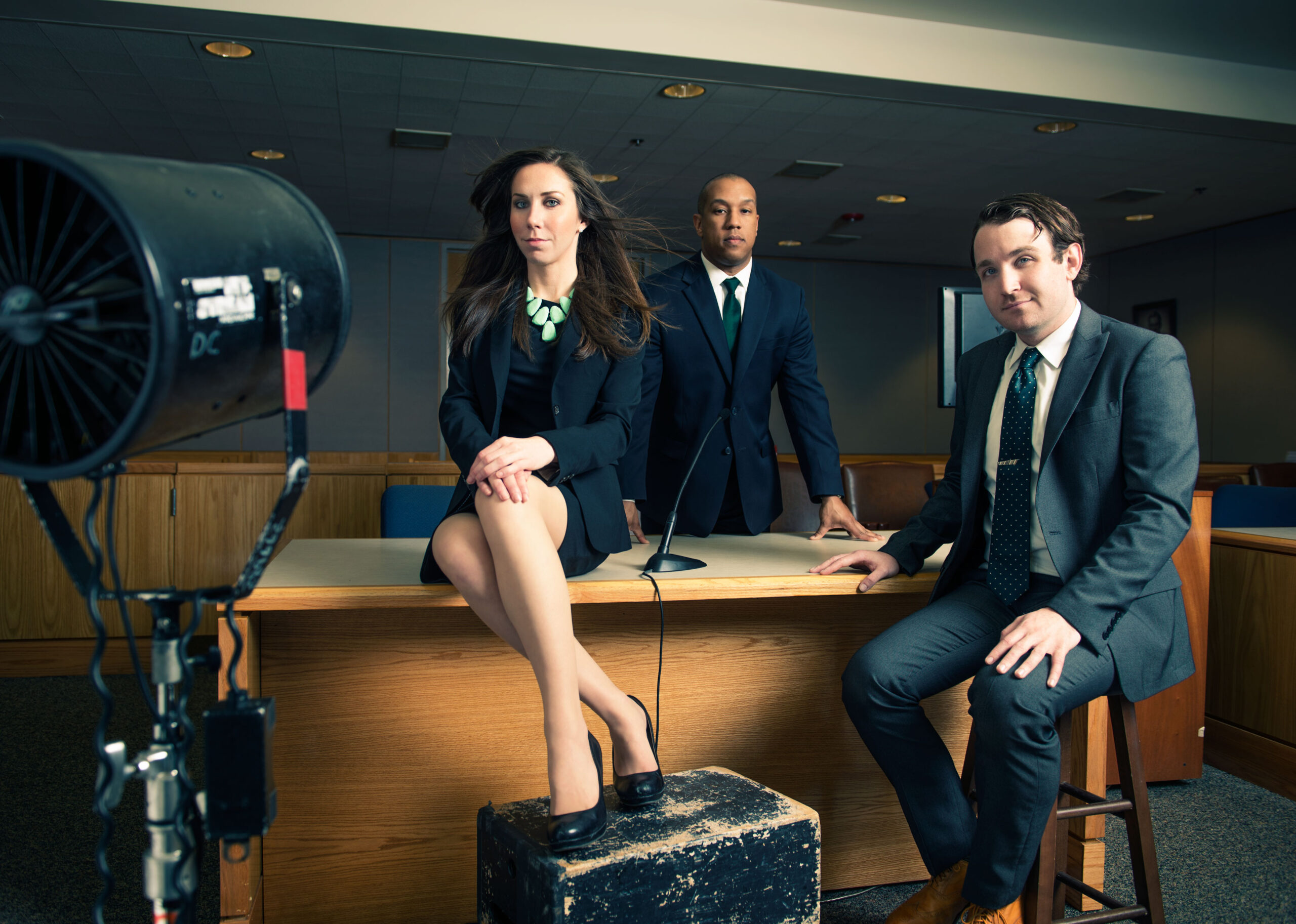This is Emily Deans, a harried 30-year-old assistant district attorney, the kind of woman who, in her second year of law school, took five of the hardest classes possible, participated in two moot court teams, and worked a part-time job at a criminal defense firm. She’s on a cleanse that forbids sugar, flour, meat, and dairy. She wears conservative business suits, often with panty hose, and even on the days when she’s allowed to wear jeans, she almost never does. She doesn’t want to go into the turmoil of her personal life right now, but it’s not pretty. At the moment, she’s anxious, but she’s trying not to show it.
Today in the Frank Crowley Courts Building, on the banks of the Trinity River, she will try her first DWI case. For the assistant district attorneys in Dallas, many of whom are fresh out of law school, misdemeanor DWI trials, in particular, have become a proving ground, a chance to get real-life trial experience that classes and clerkships can’t provide. Deans applied for the DA’s office in 2012. She started as an intern, then spent a few months working as a “lawyer on loan,” meaning she didn’t get paid, even though she was trying cases. She spends most of her time in the family violence court, where victims and witnesses are often living with defendants, and convictions are rare. In her first seven trials, Deans secured one conviction. She needs this win.
“These are definitely important cases,” says administrative chief Rebecca Dodds, who oversees the 35 or so prosecutors in the misdemeanor courts. “But they aren’t the rape, murder, capital punishment cases. There’s some room for error here. There’s some room to learn the craft.”
“These are definitely important cases. But they aren’t the rape, murder, capital punishment cases. There’s some room for error here. There’s some room to learn the craft.”
In her case today, Deans is up against Warren Abrams, a seasoned defense attorney with slick black hair that turns up at the collar of his expensive suit. He has thousands of these cases under his belt. He rarely loses, and even when he does, jurors have been known to ask for his card, just in case they ever need representation.
The man on trial is a 37-year-old oil executive accused of driving drunk on Interstate 30 one night in November 2010. With his broad shoulders and round face, he looks a little like the comedian Andy Richter. He sits at the defense table in a black suit with an open-collared green shirt and alligator cowboy boots. The arresting deputy will testify, and jurors will see video from a field sobriety test, but there’s no Breathalyzer or blood test. Much of the case will come down to what the jury thinks of the arguments made by the attorneys. The case has been delayed nine times over three and a half years, a common tactic among defense attorneys, but the defendant’s day in court is finally here. He doesn’t make eye contact with Deans or her co-counsel as they walk in.
Most of the misdemeanor courts have a team of three attorneys handling cases for the state. In this court, Damian Williams—a 29-year-old self-described “true believer” —is the “chief” prosecutor. He will handle voir dire (jury selection) and operate as co-counsel for the trial. Assisting as the number three is 30-year-old Daniel Abrahamson, a slender graduate of UT Law on his second day on the job. He was hired as an appellate attorney, but his bosses wanted to start him here to give him the trial experience.
Juries are unpredictable, and how they actually come to conclusions is a mystery. That’s why voir dire is so important. A
trial can be won or lost before the opening statements. Williams stands up and talks to the 24 people in the jury pool about the concept of reasonable doubt. He shows the prospective jurors a picture of a gun, cut up like a jigsaw puzzle with a few pieces missing.
“Does anyone here have any reasonable doubt that’s a picture of a gun?” he asks.
Abrams, the defense attorney, asks if anyone has seen the show Perry Mason. He explains that in the show, the burden of proof was “beyond a shadow of a doubt.” He reminds the jury pool that this court’s burden of proof is different, but in doing so manages to say the words “beyond a shadow of a doubt” at least four more times. The gamesmanship has begun.
When Deans eventually stands up to address the jury, she walks the long way around the defense table and past the judge—what she calls “owning the room.” It’s a trick she was taught by older attorneys. “You never know for sure what will work with a jury,” she’ll say later. “So you just try everything.”
Before she decided on law school—her father was the district attorney of Collin County—she wanted to be an opera singer. She likes performing. (If she’s had enough to drink, she might sing for colleagues.) Now, she thinks of the courtroom as a chance to be back on stage.
After an hour of voir dire, both sides agree on the six-person jury: two older white men, two black women in their 40s, one black man with a cane, and a white woman about the same age as the prosecutors.
Get our weekly recap
Credits






